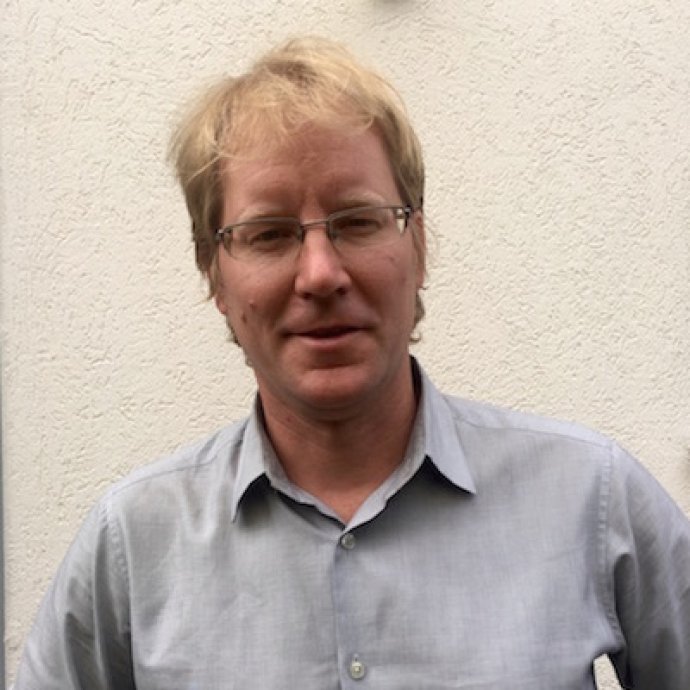Helge Wasmuth
Helge Wasmuth
About
Helge Wasmuth is a Professor in the Department of Childhood Education. Among his research interests are early education policy as well as the history of, and postmodern perspectives on, early childhood education. Dr. Wasmuth is a founding member of Cultures of Early Childhood Education (CECEC), an international research network. The network published Globalization, Transformation, and Cultures in Early Childhood Education and Care–Reconceptualization and Comparison in 2019. He has been interviewed by UNESCO’s International Institute for Educational Planning and commented on the World Bank’s 2018 World Development Report on Education. Dr. Wasmuth is a world-renowned expert on Friedrich Fröbel’s kindergarten pedagogy and the history of kindergarten. He published Fröbel’s Pedagogy of Kindergarten and Play: Modifications in Germany and the United States in 2020. He served as one of the editors of The Bloomsbury Handbook to Friedrich Froebel, which was published in 2023. In 2023, he also published Finding Froebel – The Man Who Invented Kindergarten, a new biography on Fröbel, written together with Ulf Sauerbrey & Michael Winkler. Since the summer of 2023, Dr. Wasmuth serves on the Executive Committee of the International Froebel Society.
Dr. Wasmuth currently serves as the chair of the Childhood Department
Dr. Wasmuth currently teaches the following courses:
- EDUC 500: Educational Foundations from Diverse Perspectives
- EDUC 513: Introduction to Early Childhood Education: Foundations, Methods, and Materials
- EDUC 553: Mathematics in Early Childhood and Childhood Education
- EDUC 554: Science in Early Childhood and Childhood Education
- Finding Froebel: The man who Invented kindergarten
- The Global Education Reform Movement and its impact on Early Childhood and Care
- The child as an "Other" - Re-imagining childhood
You can find Dr. Wasmuth speaking about his book and what it means to be a parent during the pandemics here: https://pathtolearning.us/podcast/who-speaks-for-froebel-helge-wasmuth/
BOOKS
- Wasmuth, H., Sauerbrey, U., & Winkler, M. (2023). Finding Froebel – The Man Who Invented Kindergarten. London: Bloomsbury.
- Bruce, T., Nishida, Y., Powell, S., Wasmuth, H., & Whitnett, J. (Eds.) (2023). The Bloomsbury Handbook to Friedrich Froebel. London: Bloomsbury.
- Wasmuth, H. (2020). Fröbel’s Pedagogy of Kindergarten and Play: Modifications in Germany and the United States. New York: Routledge
- Faas, S., Kasüschke, D., Nitecki, E., Urban, M., & Wasmuth, H. (2019). Globalization, Transformation, and Cultures in Early Childhood Education and Care–Reconceptualization and Comparison. Critical Cultural Studies of Childhood Series. Cham: Palgrave MacMillan
BOOK CHAPTERS
- Wasmuth, H. (2023). Connections – Searching for the Authentic Froebel. In Bruce, T., Nishida, Y., Powell, S., Wasmuth, H., & Whitnett, J. (Eds.) (2023). The Bloomsbury Handbook to Friedrich Froebel. London: Bloomsbury.
- Wasmuth, H. (2021). Wie der Kindergarten in die USA kam – „Ich denke oft, dass sich Fröbels Geist im Himmel über ihre Arbeit in Amerika freut. In Friedrich-Fröbel-Museum (2021). Beiträge zu 180 Jahre Bildungsort Kindergarten, 43-71
- Wasmuth, H. & Nitecki, E. (2021). The Child as “Other”: The Duality of the Other and the Pedagogy of Care. In Kinklead-Clark, Z,. & Escayg, K-A. (Eds.). Reconceptualising Quality in Early Childhood Education, Care and Development, 3-24
- Faas, S., & Wasmuth, H. (2019). Globalization, transformation, and cultures: Theoretical notes and perspectives on reconceptualization and international comparison in early childhood and care. In S. Faas, D. Kasüschke, E. Nitecki, M. Urban, & H. Wasmuth (2019). Globalization, Transformation, and Cultures in Early Childhood Education and Care–Reconceptualization and Comparison, 1-14. Critical Cultural Studies of Childhood Series. Palgrave MacMillan
- Nitecki, E., & Wasmuth, H. (2019). GERM and its effects on ECEC: Analyzing unintended consequences, destructive practices, and hidden agendas. In S. Faas, D. Kasüschke, E. Nitecki, M. Urban, & H. Wasmuth (2019). Globalization, Transformation, and Cultures in Early Childhood Education and Care–Reconceptualization and Comparison, 57-84. Critical Cultural Studies of Childhood Series. Palgrave MacMillan
- Wasmuth, H. (2018). In search of Fröbel–Challenges of analyzing the authentic Fröbel and the introduction of his kindergarten pedagogy in the United States. In S. Großkopf, N. Shaaban, U. Sauerbrey, & M. Winkler (Eds.). Zwischen Blankenburg und Kairo. Historisch-pädagogische Studien zur Geschichte des Kindergartens, 89-108. Baden-Baden: Egon-Verlag
- Wasmuth, H., & Nitecki, E. (2018). Early childhood in the WDR 2018: Acknowledged, but still rooted in western-centric and economically-focused thinking. In Educational International Reality Check (Ed.): The Bank’s 2018 World Development Report in Education. http://go.ei-ie.org/WDR2018RealityCheck.
ARTICLES
- Wasmuth, H. (2022). Vol. 9 No. 2 (2022): What does it mean to be a Froebelian in the 21st century? Global Education Review, 9(2), 23-37.
- Wasmuth, H., & Nitecki, E. (2020). (Un)intended consequences in current ECEC policies: Revealing and examining hidden agendas. Policy Futures in Education 18(6), 686-699
- Wasmuth, H. (2020). Early Childhood Education and Care in a Post-Pandemic World: The Possibility of Reimaging the Child as an Other. Knowledge Cultures 8(2), 87–95.
- Nitecki, E., & Wasmuth, H. (2017). Global trends in early childhood practice: Working within the limitations of the global education reform movement. Global Education Review, 4(3), 1-13.
- Wasmuth, H., & Nitecki, E. (2017). Global early childhood policies: The impact of the global education reform movement and possibilities for reconceptualization. Global Education Review, 4(2), 1-17.
Mercy University’s Faculty Innovation Award. (2017)
The Faculty Innovation Award honors core faculty colleagues who have distinguished themselves through their innovative practice over the past academic year.

